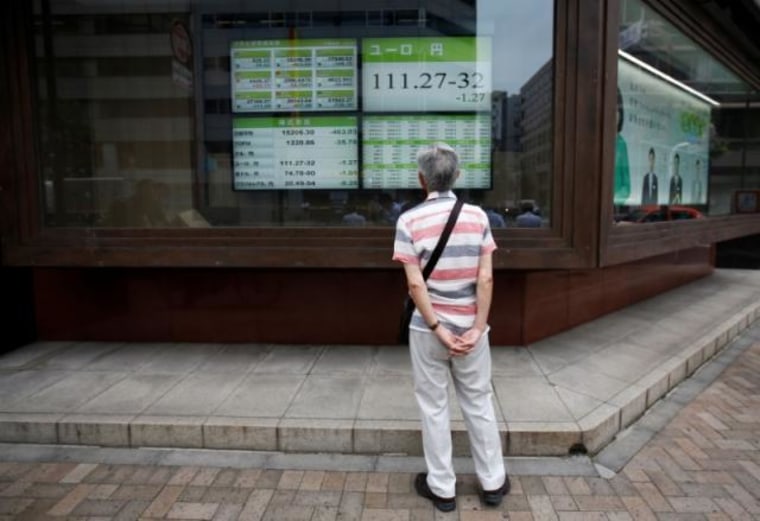Global stocks extended losses on Friday as worries about the health of Deutsche Bank weighed on financial shares and as oil prices inched back from near-one month highs on skepticism over OPEC's new plan to curb output.

On Thursday, Wall Street lost about 1 percent as Deutsche Bank shares slumped to a record low after a report that trading clients had withdrawn excess cash and positions held in the largest German lender.
The bank's U.S. shares closed down 6.7 percent at $11.48 after earlier falling to as low as $11.185.
The immediate cause of Deutsche's crisis is a fine, disputed by the lender, of up to $14 billion by the U.S. Department of Justice over its sale of mortgage-backed securities.
But Germany's biggest bank has struggled for years, highlighting Europe's inability or unwillingness to push through tough but much needed financial sector reforms.
A grilling of Wells Fargo's chief executive by U.S. lawmakers following a scandal over its opening of client accounts without agreement also helped push the S&P bank index down 1.6 percent.
A raft of data out of the U.S. next week is also contributing to market jitters, with the chance of a Federal Reserve interest rate hike in December still seen at around 50-50.
Oil prices pulled back after rising 7 percent in two days after OPEC agreed to its first output cuts in eight years. But even if production is scaled back, some analysts doubted the reduction would be enough to make a substantial dent in the global crude glut.
"The accord has not yet defined individual quotas or other forms of accountability, suggesting that this is a soft output cut at best," Francisco Blanch, commodity and derivatives strategist at Bank of America Merrill Lynch, wrote in a note.
"OPEC's action won't propel prices much above our $70 mid-year target," he added.